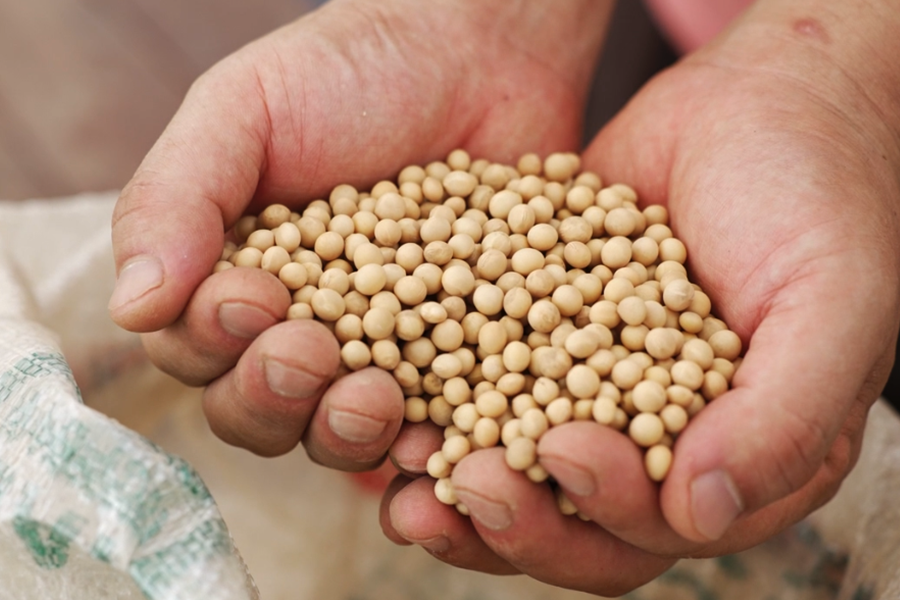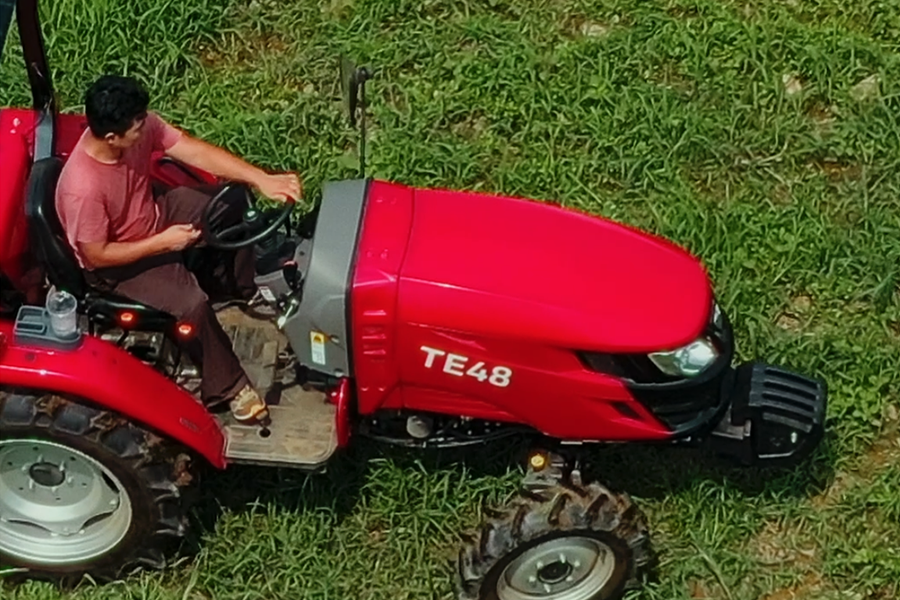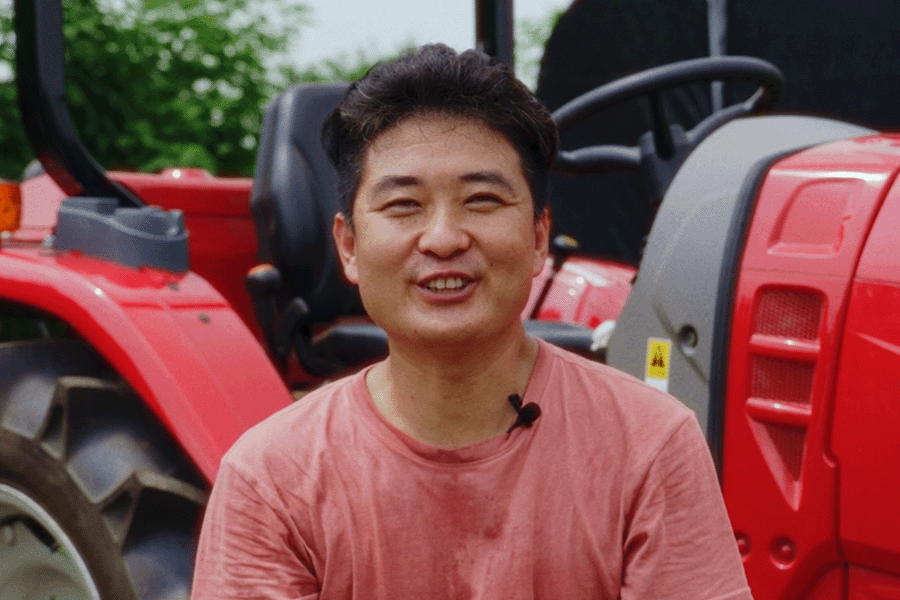
Q: Tell us briefly about your experience over the past year with your new Is the T48 (formerly TE48)? What are you growing this year? How are you using your tractor?
A: This year, we’re cultivating 13,000 to 16,000 square meters of land. In the spring we planted soybeans, and plan to harvest in November. We also grow some onion and garlic on the side. I don’t have all the attachments we need to run the farm yet, but thankfully we were able to rent necessary attachments, like a thresher, from the local farm machine rental office. We plan on getting additional attachments, like a plow for the tractor, for our soybean farming.
Q: How has your TYM tractor changed the way you work? Has it made an impact in your daily routines or bigger tasks?
A: The T48 is invaluable during planting. The absence of a cabin allows me to get on and off quickly. Being a compact, open tractor makes it easier for me to do work efficiently, especially on our smaller, irregularly shaped fields. I think its compact size will be useful later when I venture into greenhouse farming.

Q: How has your TYM tractor changed the way you work? Has it made an impact in your daily routines or bigger tasks?
A: The T48 is invaluable during planting. The absence of a cabin allows me to get on and off quickly. Being a compact, open tractor makes it easier for me to do work efficiently, especially on our smaller, irregularly shaped fields. I think its compact size will be useful later when I venture into greenhouse farming.
Q: What are your favorite features of your new TYM tractor?
A: My favorite features of the TE48 include its smooth handling and its compact size, which makes it speedy and easy to maneuver. It’s very useful for smaller-sized plots of land that require adjusting, turning corners, hopping on and off the tractor.
Q: The past year has seen a lot of unpredictable weather and unusually high rainfall in Korea, leading TYM to offer support for farmers in disaster zones. Have you experienced any challenges from unpredictable weather patterns and recent climate change?
A: It’s not easy to prepare outdoor organic farms for climate change, especially because it requires an initial investment. I would eventually like to set up greenhouse farming and grow potatoes, onion, cabbage, and even some medicinal herbs for traditional remedies.

Q: As a father of a young child who has returned to farming, have you observed any changes in your family’s connection to nature and the food you grow?
A: I met my wife through a city urban gardening project when I was working in an agricultural business. Because we have a common interest in organic farming, this has been a natural and rewarding transition for our family. Our daughter also likes the fact that the food she eats is often grown by her father. She occasionally joins us on the farm, but as a typical seven-year-old, she’s more partial to playing with her dolls for now!
Q: ICT in agriculture has changed the industry drastically in the past decade. What do you think farming will be like in your daughter’s generation?
A: In future generations, agriculture will be more influenced by technology and mechanization like autonomous driving and drones, but it’s important to remember that we’re ultimately feeding people. I believe farming at its core is honest and nourishing, and I’ll continue to provide food for people like a neighbor would, regardless of how technology evolves.
